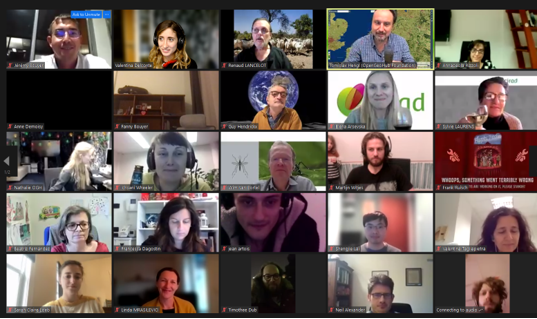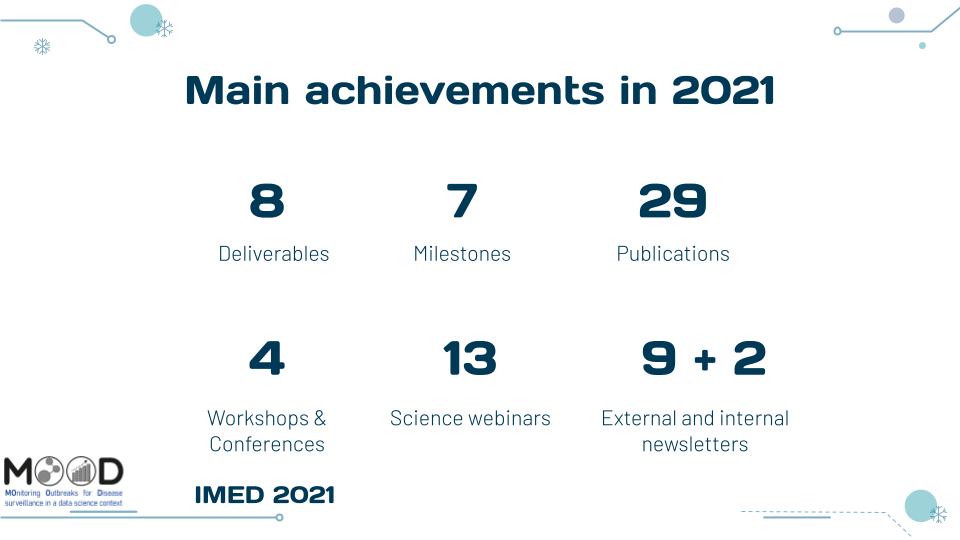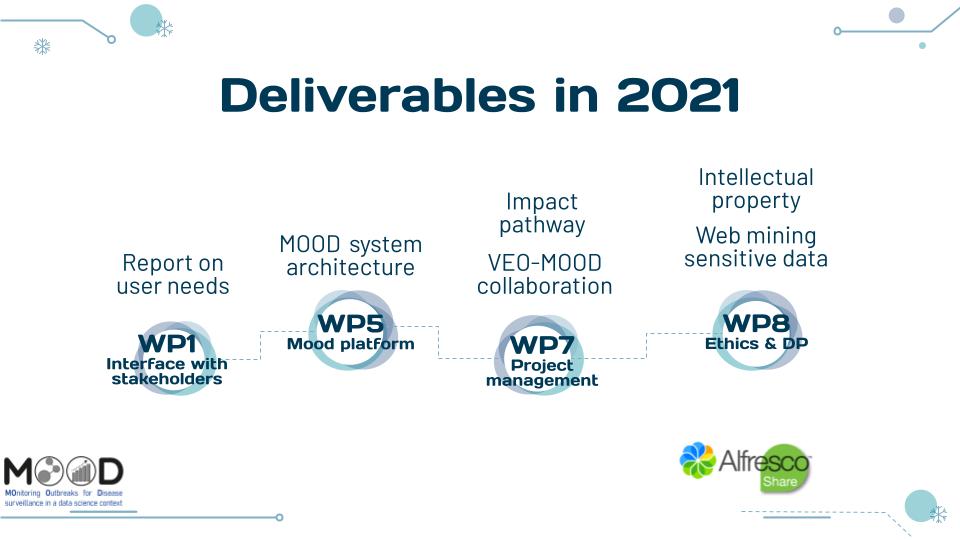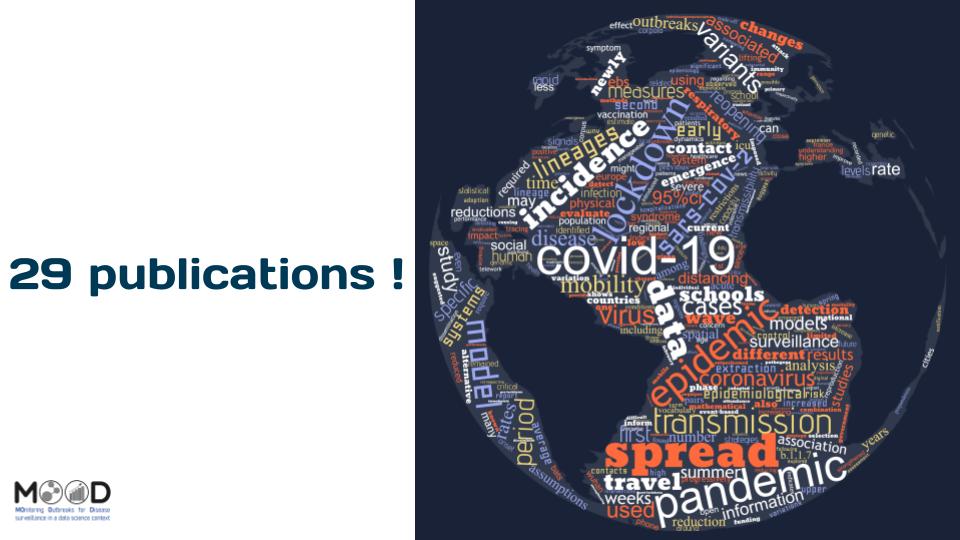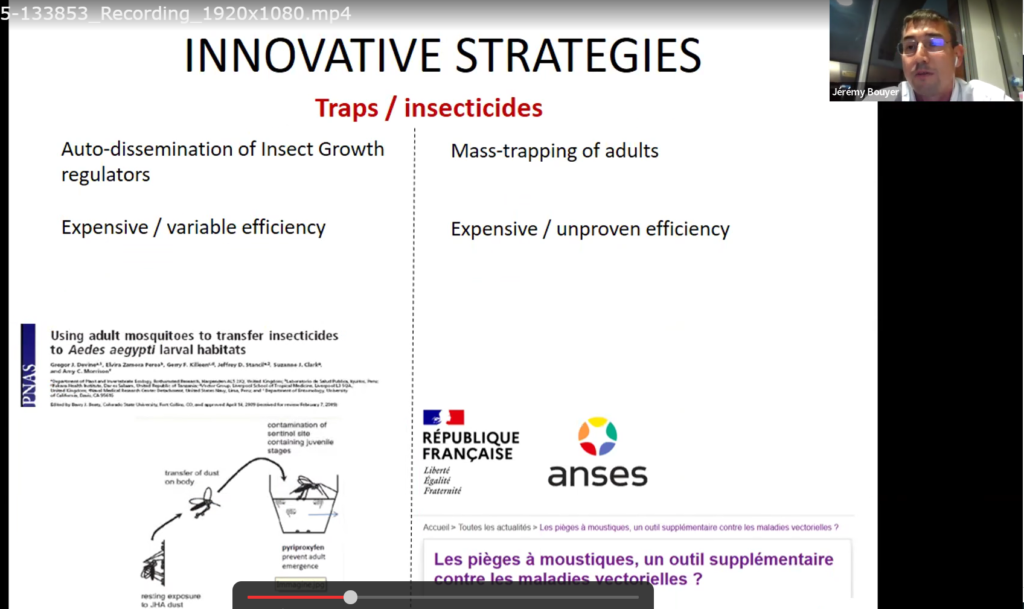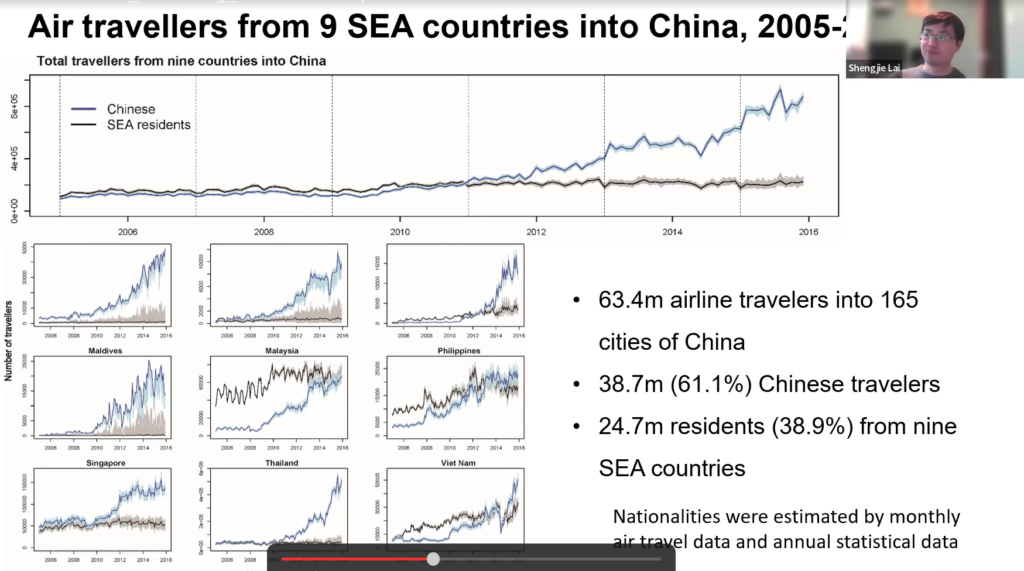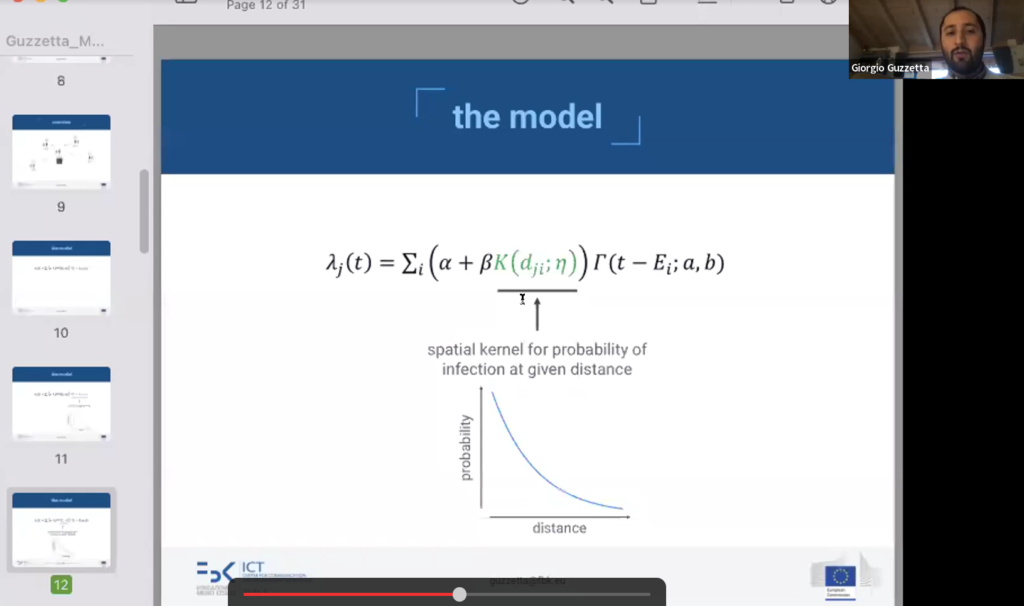The second MOOD’s anniversary –and a global pandemic– set the context for MOOD partners to meet again, recapping the work done so far, and paving the way toward the development of useful tools for Epidemic Intelligence (EI) in the year to come.
Following last year’s event, the MOOD coordination (CIRAD) and communication (OpenGeoHub) teams invited partners to the MOOD Xmas Event 2.0 for one afternoon of scientific presentations and celebrations to recognize the efforts of MOOD’s researchers and the make the point of the project in its 24th month of implementation. And of course, an exclusive Xmas concert concluded the event in full MOOD style!
Opening the event, Elena Arsevska, MOOD project manager, listed MOOD’s 2021 achievements with its first end-users assessment, a comprehensive analysis of the needs expressed produced by MOOD’s team of social scientists, and the first component of its multi-disciplinary pathway towards tools and services for PH and VH agencies. Another important checkpoint consisted in the launch of the five MOOD case studies, illustrated by Timothee Dub, THL, whose developments can soon be followed on MOOD website.
Scientific session: beyond COVID-19
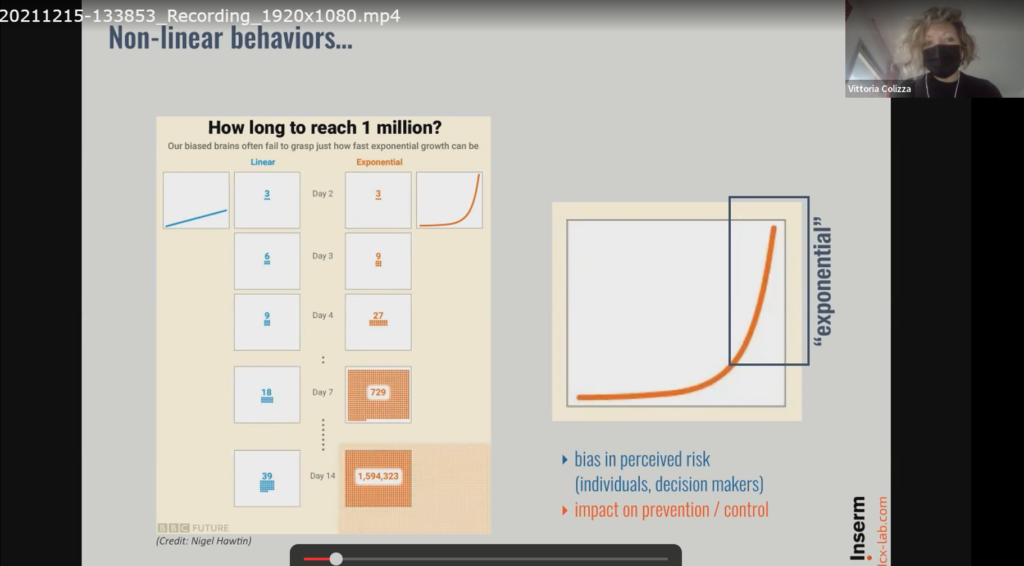
To recap 2021’s lesson learnt after two years of COVID-19 pandemic, INSERM’s head researcher Vittoria Colizza shared insights from her experience in communicating models, during which she took a leading role in modelling Sars-Cov-2 dynamics for the French authorities. “Our intuition fails with epidemic behaviour”, started Vittoria while explaining the bias of population and decision-makers in understanding the risk of a pandemic, which poses many challenges for decision-making.
Despite the ongoing health emergency, MOOD consortium of researchers has focused also to unveil the growing risk of the introduction and establishment of exotic vector-borne diseases such as Dengue, Chikungunya and Zika infections.
With 3.34 million cases of Dengue, 1.2 million of Chikungunya and 1.5 million Zika cases registered by the World Health Organization’s Special Programme for Research and Training in Tropical Diseases, diseases transmitted by Aedes mosquitos have become a major health concern for Europe and worldwide, explained Jeremy Bouyer, associated to UMER IRD at CIRAD. In his talk at the Xmas Event 2.0 ‘ Innovative control methods against invasive Aedes mosquitoes’, Jeremy illustrated the impact of climate change on the risk of spread and migration of this disease on the Reunion Island (France), and potential preventative and monitoring activities addressing European Public Health and Veterinary Health Agencies awareness. Following this line, MOOD included these three infectious diseases in its case studies for the development of EI tools and services.
In response to the increased risk of importation and establishment of Dengue’s vectors in Europe, MOOD invited Shengjie Lai, Senior Research Fellow at WorldPop from MOOD’s research partner University of Southampton (UK), to present his PhD thesis ‘ Seasonal and interannual risks of dengue introduction from South-East Asia into China, 2005-2015′. Shengjie highlighted that similar approaches and datasets for measuring the seasonal importation risk of dengue from endemic regions in China can be applied to the context in Europe. Shengije remarked, however, that data availability & destinations of travellers; competence of species/serotypes; model assumptions, validation and selection still remain important challenges.
Last but not least, with his second contribution to the MOOD’s end-of-the-year event, Giorgio Guzzetta (Fondazione Bruno Kessler, Italy), explained the modelling work behind ‘ Focal transmission and the role of human mobility ‘ for the 2017 chikungunya outbreak in Central Italy. The work provided valuable insights on the transmission chain and interventions to curb Dengue outbreaks, which could be included in MOOD’s upcoming tools and services.
Head-jump into 2022

With solid models and scientific records like those presented in this event, MOOD is ready to move forward. In parallel to its (currently) five case studies on Avian Influenza, West Nile Virus, Antimicrobial Resistance, and COVID-19, the project is head-jumping into 2022’s toward the prioritization and design of tools and services with the necessary involvement of end-users, remarked Wim van Bortel (WP1 leader) eventually.
Reaching this stage marks an important milestone, which has been possible thanks to the professionality and diversity of MOOD partners.
2022 will see MOOD presenting its first prototypes to end-users, and organizing the very first MOOD hackathons and capacity building activities.
Want to learn more? Subscribe to the MOOD newsletter or stay tuned on MOOD’s Twitter channel!
Happy new and innovative year to everyone!



